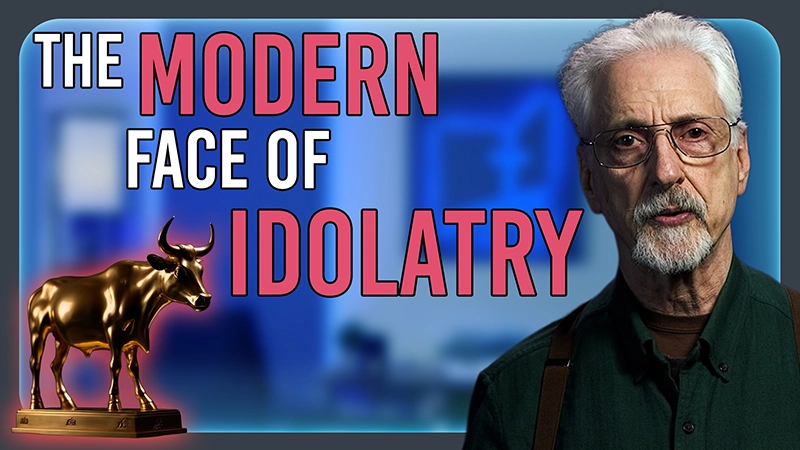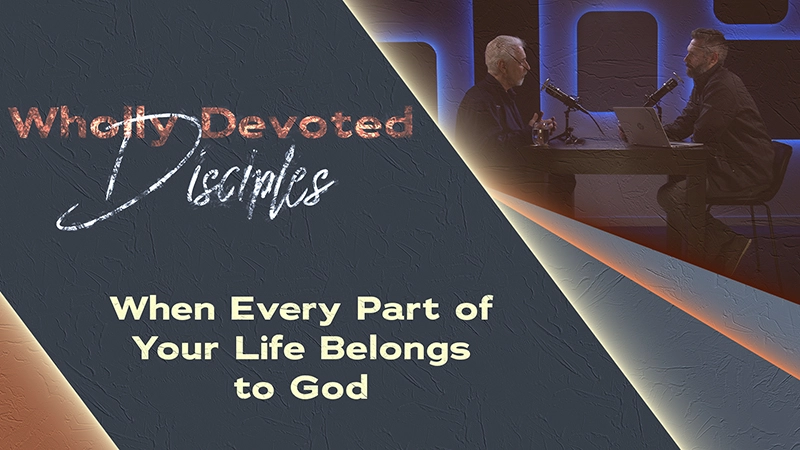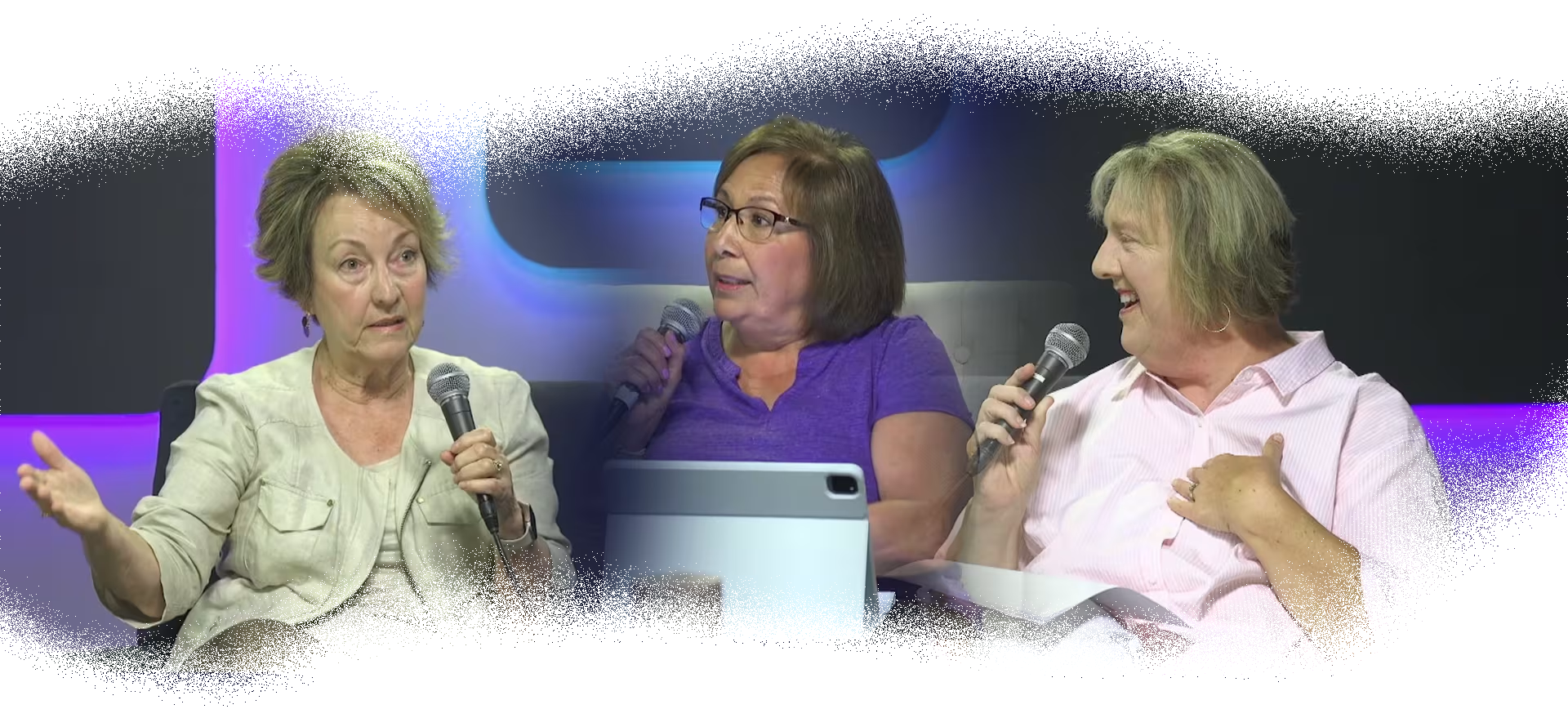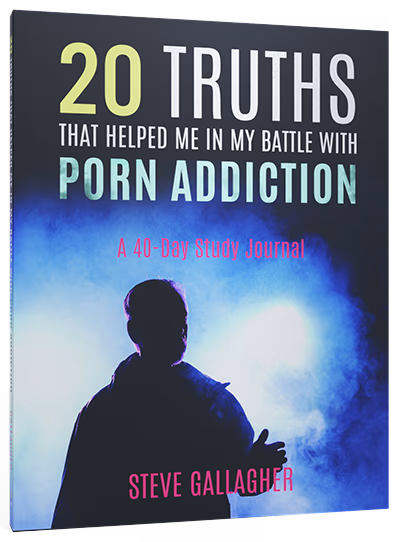
Is it Wrong for a Christian to Focus on Pleasure?
Can Christians build their lives around pursuing pleasure? Pure Life Ministries' Director of Counseling, Ed Buch, evaluates this common lifestyle with guidance from the Bible.
It seems like pleasure plays a powerful part in everyone's life—particularly in modern America. What evidence do you see that the pursuit of pleasure has saturated our culture and also affected the church?
This focus on pleasure has truly permeated our culture, and we've all grown up with it. Take medication, first of all. It seems like we are just a society that is committed to avoiding pain and pursuing pleasure; those two things go hand in hand. The medication is the piece that's about avoiding pain...or, in some cases, we're misusing medication. Millions of people have stepped across that line into addiction while pursuing pleasure.
I also see the prevalence of counseling and psychotherapy and the way we have turned to these things to justify our sin or to blame someone else. We will do absolutely anything except repent—which is what the Bible teaches us to do. You can look past even those things to other areas—from sports and entertainment to the misuse of relationships to gain emotional or illicit gratification. And many people seem to be using religion in the same way we use any of these other things; the church is just another added piece of that pursuit of pleasure. Literally, I've been in churches and realized that our churches have become more like theaters, the worship has become more like a concert, and our pastors are now required to be more like a motivational speaker. It's like there's this American version of Christianity that has become just another path to the pursuit of pleasure.
{{blog-bbaby="/blog-ads-storage"}}
When you observe our culture as well as the Bible, what's wrong with a pleasure-centered life—particularly for the Christian?
Well, there's the suicide issue. I happened to see an article that indicated the rate of suicide had increased something like thirty percent over the last fifteen or twenty years. I would also point to the addictions that we see around us. Obviously, we deal with sexual addiction every day. Statistics that we find online and elsewhere indicate that there are something like ten to fifteen million sex addicts in this country. But in addition, there are something like twenty-five million drug and alcohol addicts. And you could add in nicotine addicts, which takes it up to forty million. It goes on and on. It seems like if we really look at the things people are getting addicted to—gambling, food, and other things—that there are just tens of millions or maybe hundreds of millions of people that are addicted. I firmly believe that is the result of this pursuit of pleasure being such a cultural force.
We also see in the Bible that there are dangerous effects. In 1 Corinthians, Paul was specifically addressing a very carnal lifestyle there with very strong language. He kind of questioned them and asked, "Do you people really have Jesus here? Because this isn't the way we live when we have Jesus in our lives! "And he severely rebuked them. We can look in the Old Testament to Sodom and Gomorrah and their self-indulgent lifestyle. And don't forget that Jesus himself told us to "remember Lot's wife," who looked back at the city and was turned into a pillar of salt. That is a picture of what happens to us: our hearts get attached to these things that we find pleasure in, and we find it almost impossible to leave them behind—even with God Himself taking us by the hand and trying to lead us out.
For Christians, I would say that pursuing pleasure keeps my focus on my feelings. It's challenging to try not to live by my feelings; that's our default. But it's not biblical. So we need to override our feelings every day. If you're like me, it starts with having to override my feelings just to get up out of bed in the morning! But we do it in other ways as well. Second, pursuing pleasure will keep the flow of your life on getting and taking...instead of giving and serving—which is the emphasis the Lord has. Again, our default position is to be a taker—to arrange everything in our life so that it revolves around me. But Jesus comes along and says, "It is more blessed to give than to receive," and that's the exact opposite flow. Third, pursuing pleasure will also keep our affections set on the things of this world. We "lose our first love," like it talks about in Revelation. This pursuit of pleasure is one of the reasons why that happens to so many people. As you go that direction, your affections are getting ever drawn down on to the things of this life instead of being on "the things above." And we have to look at what we're forfeiting by pursuing pleasure: it's His Holy Spirit and His gift of self-control.
What kind of life can does the Bible teach that we can expect when we start restraining this tendency to pursue pleasure in our lives?
In the Parable of the Sower, pleasure was one of the things that was present on the "thorny ground" that robbed people of fruitfulness. I think Jesus was trying to emphasize the positive side: our lives will be much more fruitful and productive. Even our emotions eventually line up, and we have a real joy that doesn't come from this world. That's definitely been the experience that I've seen in my life and in the lives of other people. Also, in Psalm 16, it says that "in the presence of the Lord there is fullness of joy, and in his right hand there are pleasures for evermore." I want to make it clear that there is a distinction between worldly pleasures and pleasures that are eternal. God certainly has pleasures for his people beyond what we can even imagine...and we will spend eternity enjoying them fully!
This excerpt is from our podcast episode, “Pleasure, Jesus, and the War for Your Heart”.
To access our podcast library, visit purelifeministries.org/podcast, or check us out in the iTunes store or Google Play store.

















